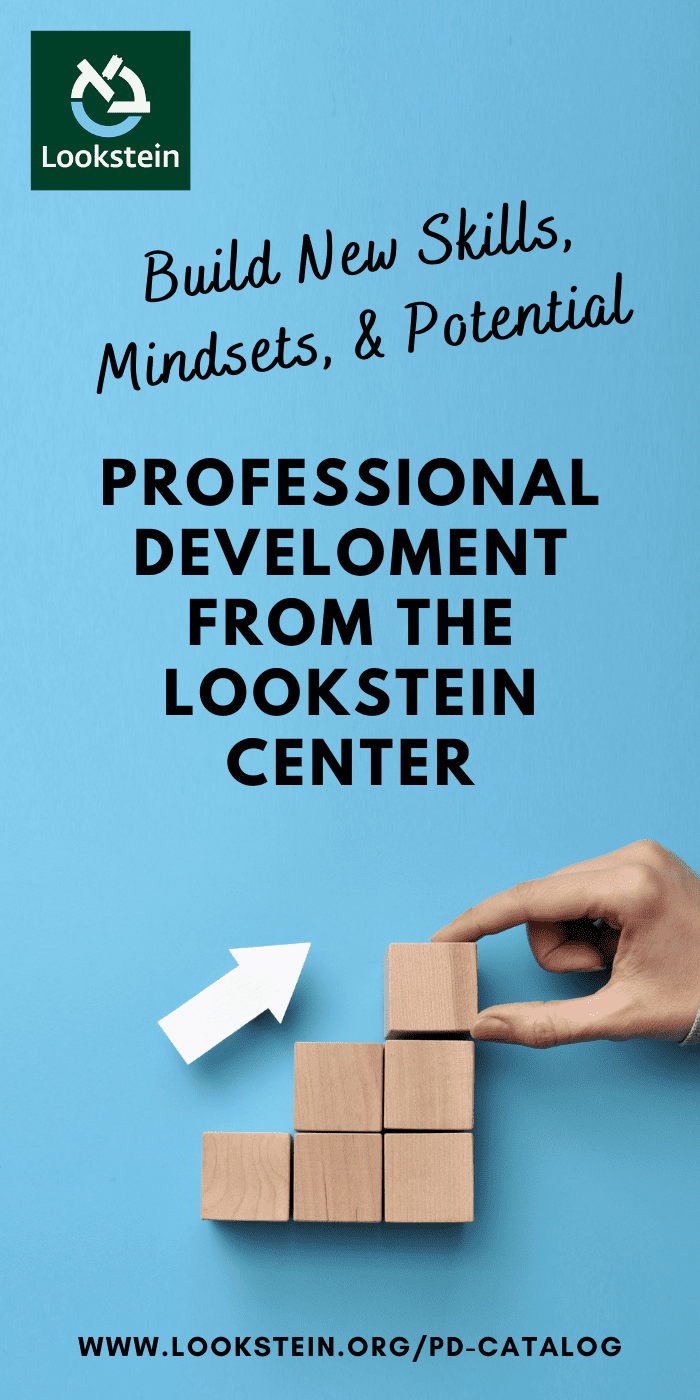The Parent-Day School Partnership: A Critical Imperative In The Shadow Of A Pandemic
As we know, parental involvement, engagement, collaboration, and support have and will continue to occupy an essential aspect of the Jewish Day school education landscape. The evolving impact of parent involvement and engagement on their children’s learning experiences has shown to strongly influence student achievement, engagement, and motivation. Moreover, parental involvement in education is widely understood as a key component to educational success. To be sure, the best predictor of student success is the extent to which families encourage learning at home and involve themselves in their children’s education.
In addition to hands-on involvement in their children’s formal cognitive development in school, over the past many decades, parents have assumed an impressive array of volunteer opportunities in order to enhance the impact and effectiveness of day schooling on students, the school, and the community at large.
The wide array of parent involvement opportunities in the Jewish day school community is impressive to say the least. It represents a growing number of parents who are motivated to assume these meaningful volunteer leadership roles in our schools. It is also the result of a remarkable level of volunteer commitment, driven by an unswerving passion on the part of parents to support Jewish day school education in a very meaningful fashion.
Today, many of our Jewish day schools have been truly blessed with a cadre of parents who continuously and successfully assume a variety of voluntary leadership roles; yet other schools continue to aspire to reach these levels of parental engagement with varying degrees of success.
Practical Ideas for Parent-School Relationships
The following domains describe a framework for parent engagement and represent a context for ongoing engagement, participation, and collaboration. It contextualizes the variety of potential applications and opportunities for parent-school partnerships, and creates a series of challenges and opportunities which deepen engagement, involvement, and collaboration.
The one common denominator is that they are all inspired by a select group of dedicated parents and/or day school professional leaders who inspire, motivate, and create these meaningful collaborative relationships and partnerships. To this end, it is important to note that these relationships do not happen in a vacuum; but rather through a carefully designed and deliberate planning process which endeavors to engage and empower parents by enabling them to become involved in school-related programs and activities on an ongoing basis.
As a Jewish day school principal, communal leader, and day school consultant, I have witnessed a wide variety of outstanding parent engagement initiatives – whether they be school-wide or classroom-based programs relating to the celebration of holidays, participation in hesed projects, science and math fairs, art contests, or the distribution of special teacher appreciation gifts to teachers (to name a few) – they are all anchored in a serious, conscious planful effort. They require time, energy, thoughtful planning, and a willingness to devote an inordinate amount of focus on detail and measurable outcomes.
Parental engagement, collaboration, involvement, and empowerment are activities which are challenging to plan and implement during “normal” times, and all the more so, during today’s COVID-19 pandemic. In fact, many of my principal colleagues are bemoaning the fact that they are now experiencing tremendous difficulty trying to engage parents in school-wide activities. This is over and above the monitoring and reinforcement of what their children are now learning remotely or in-person under very different, and at times difficult and challenging, circumstances.
In light of this health crisis, our Jewish day schools are now faced with a variety of operational, structural, curricular, and fiscal exigencies which to quote one principal, “makes parental engagement and involvement a true luxury.” I have witnessed this frustration in many schools. But I have also seen a variety of schools which continue to promote, support, embrace, and even celebrate parental engagement.
As our Jewish day schools face this unprecedented challenge, it is essential that we continue to ensure parental engagement, involvement, and collaboration. As day school leaders, we must be nimble and resilient, and we must create the right conditions for our parents which are sensitive to “new normal” realities. This includes the creation of a school environment and culture which motivates, inspires, and supports parental engagement and collaboration.
The Epstein Framework
One of the most effective and meaningful parent engagement models is embedded in a framework developed by Joyce Epstein of Johns Hopkins University, which assists educators in developing school- family partnerships which are meaningful and sustainable, and which can overcome the stresses and strains of today’s unprecedented conditions. The “Epstein Framework” for parent engagement is divided into six (6) discrete yet interrelated domains: parenting; communicating; volunteering; learning at home (connecting to homework); decision-making (policy); and collaborating with community. By dividing parental engagement into these six domains, Jewish Day Schools are able to compartmentalize the ways in which they can engage and involve parents.
To see an application of Epstein’s framework to day schools looking to involve parents with vision, purpose, and structure, click here. By compartmentalizing these activities, school leaders will be able to engage parents and present options for their involvement which respond to their interests, areas of expertise, skill-sets, and availability.
The Jewish day school needs to create a warm, respectful, and welcoming environment for parents. Schools must create an inviting culture for parents in an area which respects social distancing, offer a forum for PTA/PTO meetings for parents to voice their concerns to the school, ensure that the school responds effectively to phone calls and emails within a reasonable amount of time, remain calm and positive, and support parent involvement in policy decision-making such as dress codes, grading, and homework requirements. Especially through the course of the pandemic, the school must also reimagine creative and meaningful ways to engage parents and families. Health and safety protocols minimize the number of touch-points and interaction between parents and between parents and the school. This new reality will therefore change the nature and scope of parent engagement. The school can help to alleviate some of the distancing generated by the need for social distancing, including the following:

Chaim Botwinick
Dr. Chaim Y. Botwinick is Principal of the Hebrew Academy Community School, Margate, FL., organizational consultant, and executive coach. He served in a variety of senior leadership positions on the local and national levels and is the Co-Founder of LEV Consulting Associates, specializing in strategic planning and organizational development. He is the author of Think Excellence: Harnessing Your Power to Succeed Beyond Greatness (Brown Books, 2001).
See all the previous issues of Jewish Educational Leadership
- The use of social media platforms to engage parents as well as Zoom technology for parent education
- Parent volunteer teaching and teacher substitutes, especially from retired educators
- Parent tutors who can help the school in its remediation efforts
- Assisting in the distribution of breakfast and lunch programs
- The creation of “homework centers” staffed by parents
- Parent workshops on how to support student learning in specific subject areas
- Parents with expertise in media and advertising to help promote the school
- Assist the school in its “welcome wagon” for new parents and families
- Help coordinate fundraising events and opportunities
- Serve as a liaison to foundations and governmental funding agencies in order to help leverage desperately needed financial resources
- Assist in school functions
- Assist the school in its efforts to recruit new families
These are just a few of the ways in which schools can engage parents in activities which are vital to the future success of the school.
Conclusion
Parental engagement and involvement in the current pandemic environment is a challenge unsurpassed in history. What was once viewed as a relatively natural and straight-forward opportunity for parent partnership and collaboration is now as a daunting challenge with significant barriers and limitations. Social distancing requirements, and health concerns have significantly changed the parent-partnership landscape. Parents are hesitant to spend extra time on school projects outside the home and schools are hesitant to ask parents to commit more time to the school. This unfortunate reality has greatly curtailed the quality and quantity of parent involvement and engagement in the school. Nevertheless, as schools begin to acclimate to the new realities of the pandemic and as schools get accustomed to mitigating unknown health concerns, more and more parents and schools will return to pre-COVID opportunities.
Schools can begin now to plant the seeds for future effective parent-partnerships. It will take a level of optimism and resilience in addition to a positive disposition. The crisis challenges us to be creative and generate new opportunities, as we reimagine how parents can once again help transform our schools into strong, vibrant and viable institutions.



